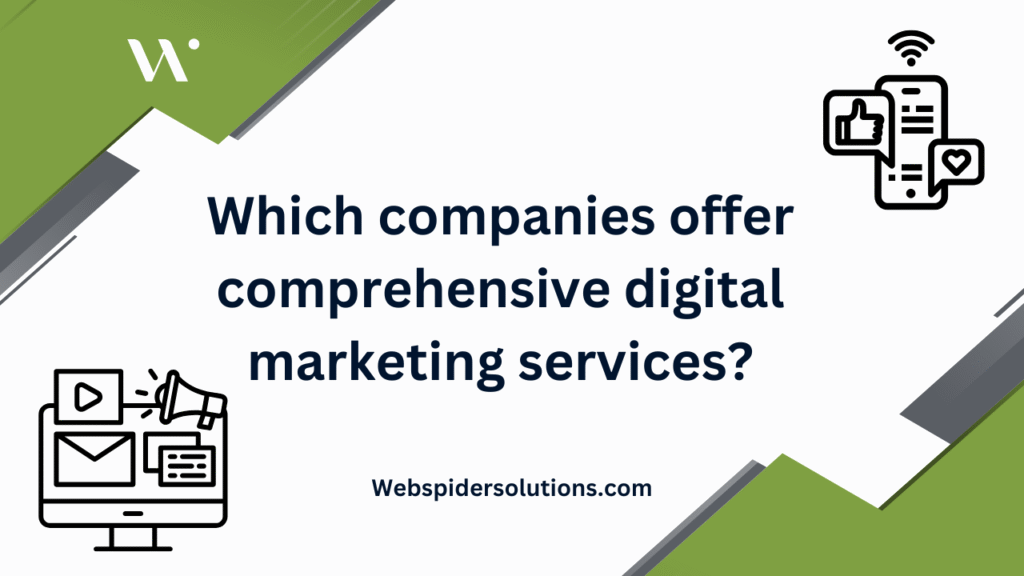SEO is crucial if a business is to build an online presence in the current technological environment. It is a good way to gain more exposure, generate more traffic, and ultimately, generate more sales. However, many people are asking the following questions: what is SEO, and how does it function? This guide will also explain the elements of SEO, the way to implement it, and the information about trends in its development.

What is SEO?
Search Engine Optimization, abbreviated as SEO, is the method that a website can be designed to perform favourably within search engines like Google, Bings, and yahoo. It is designed to improve the possibility that the website will be included in natural or free search engine results during a user keyword search. Based on the fact that websites are some of the most common access points online, it stands to reason that the more visible your website is, the higher the likelihood you are likely to have a ready pool of potential customers.
Other techniques involved in SEO include understanding what people are searching for and producing content that satisfies their needs, making that content easily accessible for the search engines to find and implementing methods that make a website easy to browse and navigate. It is all about making search engines comprehend what your site is all about and as to why it located at the top of the search results page?
How Does SEO Work?
At its core, SEO revolves around three key elements: onpage optimization, offpage optimization and technical optimization. Let’s dive into each:
1.On-Page SEO:
This refers to optimizing the content and structure of your website. Key factors include:
Title Tags: These HTML elements define the title of a webpage. An optimized title should be clear and contain relevant keywords.
Meta Descriptions: These are brief descriptions of Web content displayed on search engine results page. A good meta description convinces users to click on the link on their search result page.
Header Tags (H1, H2, H3, etc.): The arranged content will better comprehend the information and be beneficial for the SEO process. Browsers themselves use these tags to comprehend content, structure and its relevance.
Content Optimization: Link popularity is important, but so is the quality of the content and the use of keywords where possible. This is a way of telling the search engines what your page is all about by finding ways of including the keywords in your content naturally.
URL Structure: It’s better to have SEF (Search Engine Friendly) URLs such as “/best-seo-tips” than “/?p=1234”.
Off-Page SEO: Off-page SEO in the other hand is a process that is performed outside of the website to enhance the ranking. The most crucial element in this case is backlinks. These are references from other sites to yours and Search Engines use these to determine your site’s importance and relevance.
By identifying with reliable web sites and posting worthy content, one has higher chances of obtaining quality back links. Linking site that has more authoritative rank than the linked site offers more valuable backlink.
2.Technical SEO:
This area deals with Technical SEO, focusing on the technical aspects of your website that can impact search engine crawling and indexing. Important factors include:
Site Speed: As for this aspect, fast loading sites have been appreciated by the users and the search engines since the speed of loading website has been boosted significantly.
Mobile-Friendliness: The other factor that should be taken to consideration is whether or not the site is a mobile site due to the fact that the world is endowed with mobile phones and many of them are used for browsing the internet.
Crawling and Indexing: Bots (or spiders) are used by the search engines to analyze your site to index its content. Appropriate usage of things like sitemaps, robots.txt, etc. make your site easily crawlable, and therefore well indexed by the search engines.
Schema Markup: Markup for structured data can be useful to the search engine as it can tell what material is related to other material, meaning your site is more likely to rank well.
Why SEO is Important
Many internet interactions first get initiated from a search engine, and search engine or organic traffic represents 53% of total visits. Indeed, SEO is a necessity that no business should ignore or compromise because it helps to make your business unique among competitors.
Some of the benefits of SEO include:
Increased Website Traffic: The position of a website in search results controls the amount of traffic that the site actually obtains.
Credibility and Trust: Having the site feature on the first page of search engines is a routine way for website users to gain trust and confidence in the site.
Better ROI Compared to Paid Ads: Thus, although PPC advertising generates results quickly, SEO generates a lasting effect and a greater ROI in the long run.
Improved User Experience: SEO works hand by hand with the fine-tuning of your site, its design, loading speed, and usability, making the experience better for users.
Best SEO Tools to Help You Succeed
To monitor and enhance your SEO efforts, there are several tools available:
Google Analytics: Gives you important understanding of your traffic and how users interact on your website.
Google Search Console: Listens to and ideally assists you in measuring your website’s search ranking efficiency and also finding any difficulties that affect it.
SEO Plugins (e.g., Yoast, All in One SEO): They offer tips for optimizing your web pages and can assist with technical SEO.
SEO Trends to Watch in 2024
Evolving search engines require that we stay in touch with the latest SEO trends to be successful. Here are some trends that will shape the future of SEO:
AI and Machine Learning: Thanks to machine learning and AI, Google’s algorithms are improving in complexity. The use of these technologies helps search engines to better interpret user intent, leading to more precise search results.
Voice Search: As digital assistants like Siri and Alexa are increasingly used, so too does the relevance of voice search increase. Entering the growing segment of search activity will require companies to concentrate their efforts on natural language and long-tail keywords.
User Experience (UX): Google’s Core Web Vitals have emerged as ranking factors, being centered on load speed, interaction, and stability in visuals. A frictionless experience for users is now paramount for optimizing search engine results.
Video SEO: Video content is constantly increasing in popularity. Using YouTube, organizations can bring traffic to their websites and also enhance audience involvement. The improvement of video content ought to encompass the use of aptly chosen names, texts, and tags for video SEO.
Conclusion
When conducted properly, SEO Services can result in a substantial return on the invested time. Adhering to best practices and staying aware of the most recent trends allows businesses to enhance their search rankings, attract greater organic traffic, and establish a dedicated audience. Regardless of whether you’re just beginning or wanting to reshape your existing strategy, SEO is a strong means for enhancing your digital reach.
Ready to improve your SEO strategy to the next tier? Connect with our team of experts for a tailored SEO strategy that leads to actual results.
Visit this blog to know about the SEO strategy in 2025











